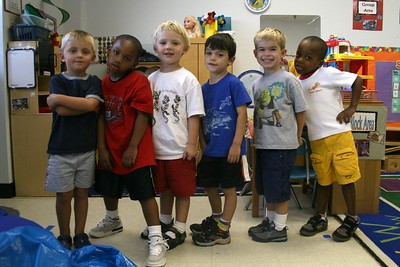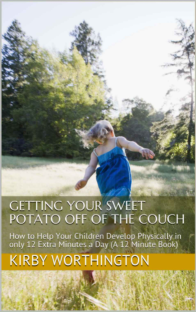Teach Your Preschooler to Tell the Truth
 Josie's (age 3) parents had been trying to teach her not to lie. They had been talking with her about lying, giving consequences for lying, and making a concerted effort to stop the behavior. One day Josie accidentally knocked over her milk. She quickly started cleaning it up, and said to her mother, "I don't know if this is a lie or not, but I spilled my milk."
Josie's (age 3) parents had been trying to teach her not to lie. They had been talking with her about lying, giving consequences for lying, and making a concerted effort to stop the behavior. One day Josie accidentally knocked over her milk. She quickly started cleaning it up, and said to her mother, "I don't know if this is a lie or not, but I spilled my milk."
Josie knew that a lie was something she shouldn't do…but she didn't understand what it was. Lying is a lot more complicated of a concept than adults tend to think. And even once a preschooler really understands the concept of true and not true, their brains aren't mature enough to always get it right.
Of course, we can still work with preschoolers to teach them to be honest. It's just that it's important to take a gentle teaching approach that is appropriate for their level of development. We'll give you some ways to teach preschoolers to tell the truth. But first…
Here are some things to know about preschoolers and lying:
They think you can hear their thoughts. Because preschoolers are egocentric, they believe that since they can "hear" what goes on inside their heads, you can too. This is one reason true lying is not common for preschoolers.
They can't take someone else's perspective. A real lie means thinking about what someone else is thinking and then trying to manipulate what they think. Preschoolers are just not capable of that level of mental gymnastics.
Studies have shown that kids under the age of about 4 ½ can't figure out how to lie in a premeditated way.
Preschoolers have trouble distinguishing between reality and fantasy. What is true and what they want to be true or just imagine to be true are hard for them to sort out. Plus they truly believe some things that we know to be fantasy—like that inanimate objects are alive and have feelings.
They don't have good memories, especially if they are emotional. Facts may get distorted just because they got scared by being "caught" at something.
They have very little impulse control. If they get caught doing something and have the urge to deny it, they can't think through whether that's right or wrong—they just do what pops into their brain.
How to Teach Truth-Telling
When teaching honesty, the first step is to teach the concept of "true" and "not true." Start out by playing games with opposites. For example, start with big and little. Together, name things that are little, and name things that are big. Then say, "An elephant is little. Is that true or not true?" "A mouse is little. Is that true or not true?" You can do the same thing with high and low—crouch down and say, "I'm up high. Is that true or not true?" Any opposites will work.
Once they really have this concept, you can start applying it when they seem to be lying.
For example, Charlotte says she did not color on the wall. You can calmly say, "Well, let's think about this. You're standing next to the wall with a crayon in your hand. You said you didn't color on the wall. Was that true or not true?" Usually preschoolers will 'fess up.
A next step is practice. Ask, "If you're doing something you know is wrong, and Mommy asks you about it, what should you do next time?" You're looking for some version of "I did it. I'm sorry." Practice several times coming into the room and asking, "Charlotte, did you color on the walls?" and have her respond truthfully.
(As a side note, practice games are also a good idea for the original offense. Say, "Charlotte, if you are in the bedroom and you feel like coloring, what do you do? Run get paper!" Practice running for paper from different rooms of the house.)
Focus on training truth-telling through gently challenging untruths and practicing telling the truth.
Most preschoolers will not make lying habitual unless they are being rewarded in some way. This can often be unintentional. This "reward" could be either positive or negative attention. Think about what kind of reaction they get to their lying and whether there is a way to make this response more low key.
As kids get to be 4 or 5 years old, their brains become mature enough to begin lying on purpose. But you can continue to work on this in similar ways, asking, "This is what you said. Is that true or not true?" As children get older you can begin to talk more about the reasons why truth-telling is important. You can talk about trust and whether they want you to believe them when they tell you something. You can tell the story of the boy who cried wolf, and talk about the consequences of lying—that people stop believing you, not that you get eaten by wolves.
One resource we recommend is the book Teaching Your Children Values by Linda and Richard Eyre. They have a whole chapter on activities to do with your family to develop honesty.
And as always, what we model is of utmost importance. Let your children see you being honest, even in difficult situations, and it will make an impact.
Please leave a comment and tell us about your experiences teaching your kids to tell the truth!
Photo Credit: woodleywonderworks cc
Related Posts
By accepting you will be accessing a service provided by a third-party external to https://mail.growthandgiggles.com/

